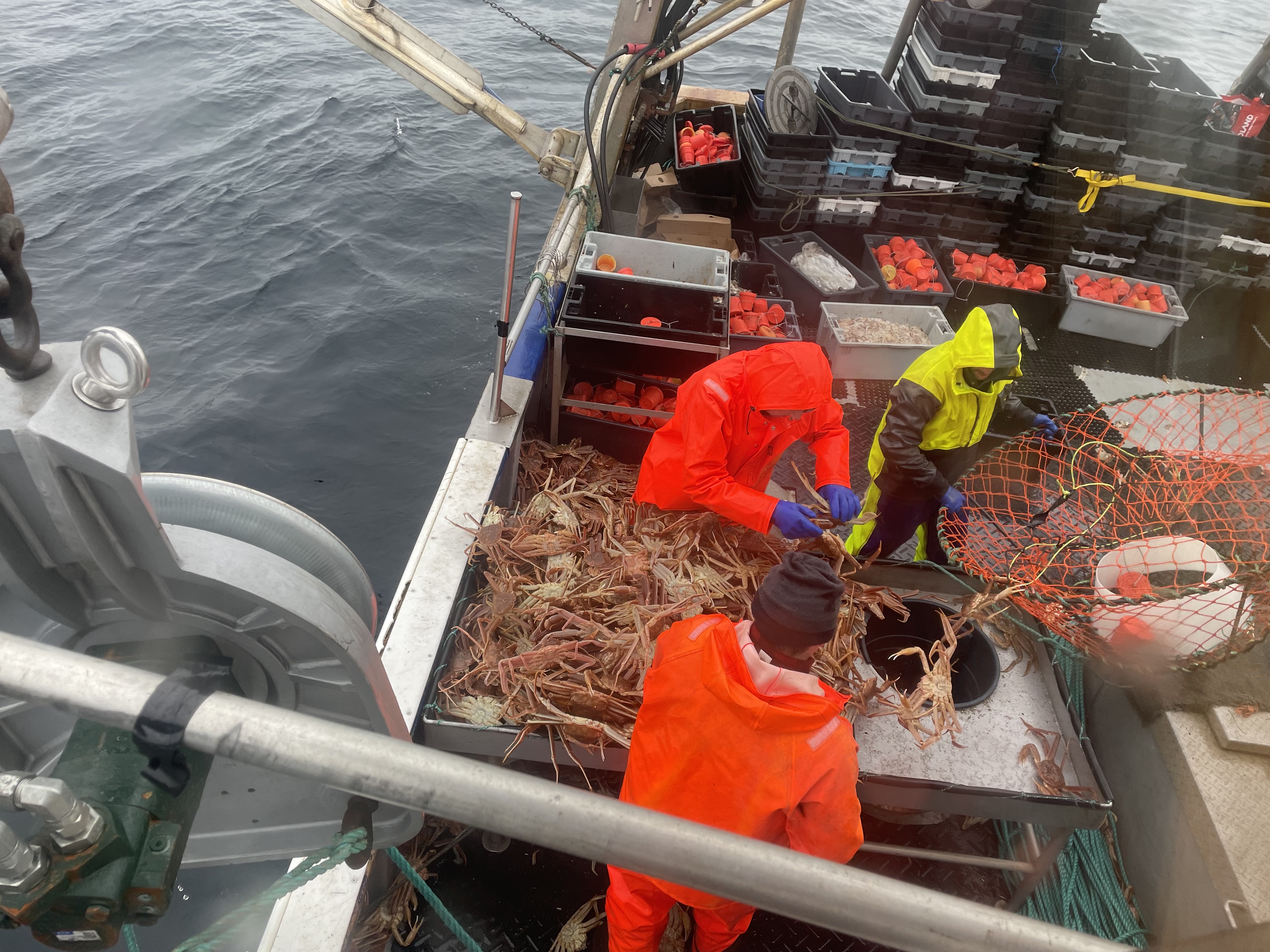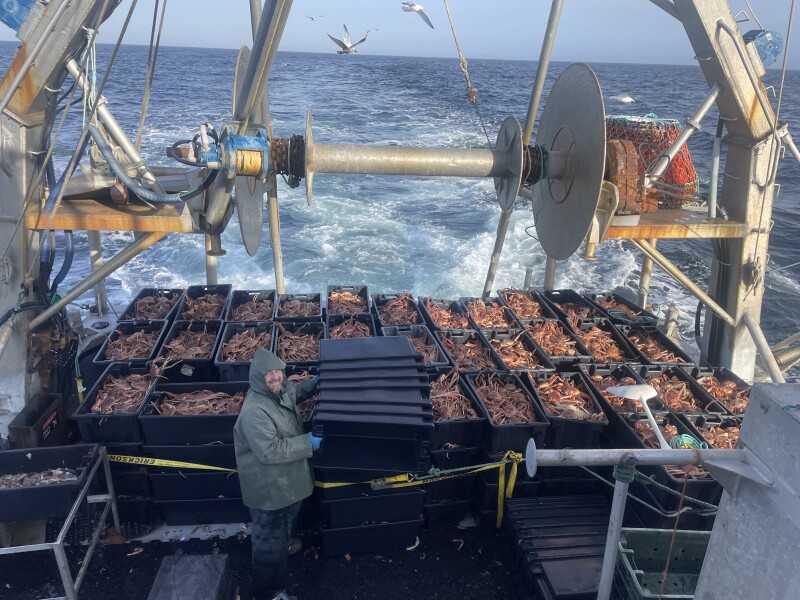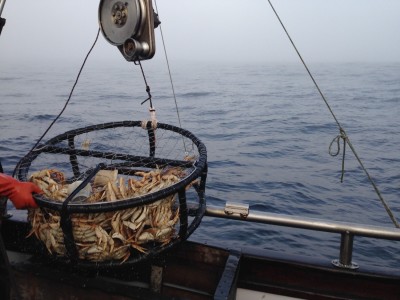This time last year, John Efford Jr. of Port de Grave, Newfoundland, was helping organize fellow members of the Fish, Food, and Allied Workers Union (FFAW) to strike for a better price for snow crab and the ability to sell to off-island markets. This year, the FFAW is trying to settle on a price with crab processors again, but the potential of a 25 percent tariff looms over the negotiations.
"If they were talking about 10 percent, we could work that out,” says Efford. “But 25 percent could have a big effect on the market,” Efford explains that the processors may be selling for market estimates 13.60, but if a 25 percent tariff is imposed, that would push that to $17.00. “That’s Canadian dollars. Typically, exporters will try to push as much of that onto the consumers as they can, but nobody is going to give us a definitive answer on how that's going to look.”
Efford reports that the Union has talked to economists, provincial and federal governments, lawyers, exporters, and more. “We’ve been talking to everyone we can, trying to understand how this could go. Our stance is to let us settle on a price first, and we’ll deal with tariffs if and when they come. It seems that harvesters will bear the burden of the tariffs in totality. In the real world, that’s not how it works.”
While the Union fought for a fair price last year and ended up with a final minimum price of $3.75 CAD, the 2025 season has already opened in the Maritimes, and according to Efford, fishermen there are reporting a minimum price of $6.00 a pound. He believes fishermen could get more in Newfoundland this year. “Over there, the processors are selling to the U.S., and the market is reporting paying $13.60 Canadian. They’re trying to get as much across the border as they can before the tariffs kick in—if they do. But they don’t have much product yet. It’s just trickling in, and we don’t know how it’s going to affect the market; from all the analysis we can gather, it’s expected to rise.”
The Newfoundland season started on April 1. “The tariffs are supposed to start on April 2,” Efford says. “That complicates things. Newfoundland is the biggest snow crab producer in the world and it comes in fast and they know it’s coming in regardless. So it’s market right now and that’s going to drive good prices .”
Industry has agreed to Binding Arbitration after April 2. “That's great,” says Efford. Then we’ll know exactly what we’re dealing with.”

Efford and the crew on his boat, the Five Jacks, will be hauling about 400 traps a day and landing as many as 46,000 pounds of crab in a two-day trip. “Our allowance is 450,000 pounds, an increase over last year’s 375,000. It will take us about two months to get our allocation ashore.”
With a better price and a better allocation, Efford can expect a good season, with only the cost of Tariffs to “make a mess of it,” as he says. “We’re hoping President Trump will reduce the tariffs, that’s what we think will happen.”







